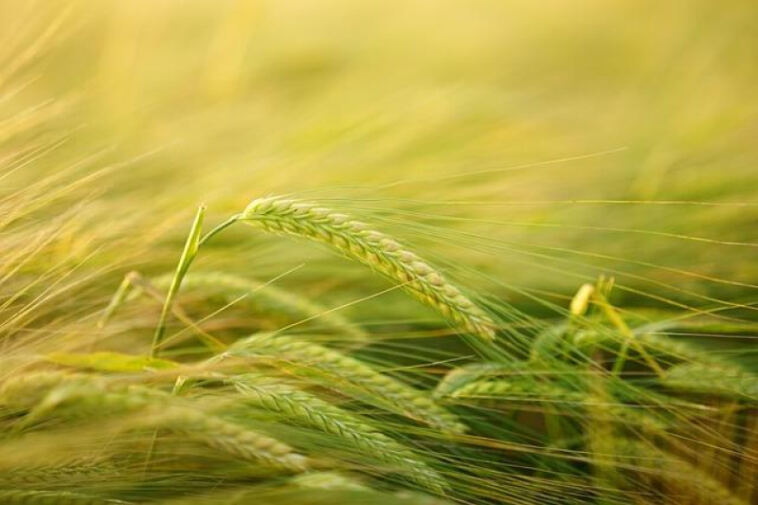- Like
- SHARE
- Digg
- Del
- Tumblr
- VKontakte
- Flattr
- Buffer
- Love This
- Save
- Odnoklassniki
- Meneame
- Blogger
- Amazon
- Yahoo Mail
- Gmail
- AOL
- Newsvine
- HackerNews
- Evernote
- MySpace
- Mail.ru
- Viadeo
- Line
- Comments
- Yummly
- SMS
- Viber
- Telegram
- JOIN
- Skype
- Facebook Messenger
- Kakao
- LiveJournal
- Yammer
- Edgar
- Fintel
- Mix
- Instapaper
- Copy Link
In the verdant world of cannabis cultivation, the key to a thriving harvest lies within the soil itself. As growers delve into the intricate realm of nutrient management, the quest to feed the green reaches new heights of precision and innovation. Join us as we embark on a journey to explore the essential nutrients that fuel the growth of this beloved plant, uncovering the secrets to unlocking its full potential.
Understanding the Role of Nutrients in Cannabis Growth
When it comes to cultivating cannabis, understanding the role of nutrients is essential for optimal growth and yield. Nutrients are the building blocks that plants need to thrive, and cannabis is no exception. By providing the right balance of nutrients, growers can ensure that their plants are healthy, vigorous, and able to produce high-quality buds.
There are several key nutrients that are crucial for cannabis growth, including nitrogen, phosphorus, and potassium. Nitrogen is important for leafy green growth, phosphorus plays a key role in root development and flowering, and potassium helps with overall plant health and disease resistance. In addition to these macronutrients, cannabis also requires micronutrients like calcium, magnesium, and iron to support essential metabolic processes.
Each stage of the cannabis growth cycle requires different nutrient ratios to support optimal plant development. During the vegetative stage, plants will benefit from a higher nitrogen content to promote leafy growth. As plants transition into the flowering stage, phosphorus becomes more important to support bud development. By carefully monitoring nutrient levels and adjusting accordingly, growers can ensure that their cannabis plants receive the nutrition they need to thrive.
Optimizing Micronutrients for Healthy Plant Development
When it comes to cultivating healthy and thriving cannabis plants, optimizing micronutrients plays a crucial role in their development. Micronutrients are essential elements that plants need in small quantities for various physiological functions. By ensuring the right balance of micronutrients, you can promote strong root development, improve nutrient uptake, and enhance overall plant health.
One key micronutrient for cannabis cultivation is iron, which is essential for chlorophyll production and photosynthesis. Iron deficiency can lead to yellowing of leaves, stunted growth, and decreased yields. To prevent this, consider adding iron-rich fertilizers or supplements to your nutrient regimen. Another important micronutrient is zinc, which plays a vital role in enzyme function and protein synthesis. A lack of zinc can result in distorted leaves, poor flowering, and reduced resin production.
When feeding your cannabis plants, it’s essential to provide a balanced mix of micronutrients to support their growth and development. Incorporating a quality micronutrient supplement into your feeding schedule can help ensure that your plants have all the essential elements they need to thrive. Remember to monitor your plants closely for any signs of nutrient deficiencies and adjust your feeding program accordingly to promote healthy and vigorous growth.
Balancing Macronutrients for Maximum Yields
When it comes to cultivating cannabis, balancing macronutrients is crucial for achieving maximum yields. By understanding the role of nutrients in plant growth, cultivators can optimize their feeding regimen to promote healthy and vigorous plants. Macronutrients such as nitrogen, phosphorus, and potassium play a vital role in the growth and development of cannabis plants, influencing factors like leaf structure, root development, and flower production.
Nitrogen: Known as the building block of protein, nitrogen is essential for promoting robust vegetative growth in cannabis plants. A deficiency in nitrogen can result in stunted growth, yellowing leaves, and overall poor plant health. On the other hand, an excess of nitrogen can lead to nutrient burn and inhibit flower production. Finding the right balance of nitrogen is key to achieving optimal yields and quality in cannabis cultivation.
Phosphorus: Phosphorus plays a vital role in energy transfer within the plant, influencing processes like photosynthesis and nutrient uptake. Adequate phosphorus levels are essential for promoting strong root development, flowering, and overall plant vigor. A deficiency in phosphorus can result in slow growth, weak stems, and poor bud development, while excess phosphorus can inhibit nutrient uptake and lead to toxicity issues.
Utilizing Organic Fertilizers for Sustainable Cultivation Practices
When it comes to sustainable cultivation practices, utilizing organic fertilizers is key in promoting healthy growth and maximizing yield. In the world of cannabis cultivation, feeding the green with nutrient-rich organic fertilizers can lead to higher quality and more potent crops.
Organic fertilizers, such as compost, manure, and bone meal, provide essential nutrients to cannabis plants in a natural and environmentally friendly way. These fertilizers help improve soil structure, enhance water retention, and promote beneficial microorganisms, all of which contribute to the overall health and vitality of the plants.
By incorporating organic fertilizers into your cannabis cultivation practices, you not only nourish the plants but also support the ecosystem in which they grow. Embracing sustainable techniques like using organic fertilizers is not only beneficial for the environment but also for producing top-quality cannabis that is free from harmful chemicals and residues.
Key Considerations for Feeding Cannabis Plants During Different Growth Stages
Feeding the Green: Exploring Nutrients in Cannabis Cultivation
When it comes to feeding cannabis plants during different growth stages, there are several key considerations to keep in mind. Understanding the nutritional needs of your plants at each stage of growth is crucial for maximizing their potential yield and health. Here are some important factors to consider:
- Seedling Stage: During the seedling stage, cannabis plants have different nutrient requirements as they establish their root systems. It’s essential to provide a balanced nutrient solution with a focus on nitrogen to promote healthy leaf growth and overall plant development.
- Vegging Stage: In the vegetative stage, cannabis plants are focused on growth and foliage development. They require higher levels of nitrogen, phosphorus, and potassium to support leafy green growth. Providing a well-rounded nutrient mix with a higher nitrogen content will help your plants thrive during this stage.
- Flowering Stage: When cannabis plants enter the flowering stage, their nutritional needs shift to support bud development and flower production. A nutrient mix with higher phosphorus and potassium levels is essential for promoting healthy flower growth and maximizing resin production.
By understanding the specific nutrient requirements of cannabis plants during each growth stage, you can ensure that your plants receive the necessary nutrients to thrive and produce high-quality yields. It’s important to monitor your plants closely and adjust your feeding regimen as needed to achieve optimal growth and health throughout the cultivation process.
Q&A
Q: What are the key nutrients needed for successful cannabis cultivation?
A: In order to thrive, cannabis plants require a balanced diet of essential nutrients such as nitrogen, phosphorus, and potassium. Additionally, micronutrients like calcium, magnesium, and sulfur play a crucial role in promoting healthy growth and development.
Q: How can growers ensure their cannabis plants are receiving the proper nutrients?
A: Growers can conduct soil tests to determine the specific nutrient needs of their plants and adjust their feeding regimen accordingly. Utilizing organic fertilizers and supplements can also help provide a well-rounded nutrient profile for optimal growth.
Q: What are some common nutrient deficiencies seen in cannabis plants?
A: Common nutrient deficiencies in cannabis plants include yellowing leaves (indicative of nitrogen deficiency), browning of leaf tips (indicative of potassium deficiency), and poor bud development (indicative of phosphorus deficiency). Identifying and addressing these deficiencies early on is critical for plant health.
Q: Are there any sustainable nutrient solutions for cannabis cultivation?
A: Yes, there are several sustainable nutrient solutions available for cannabis cultivation, including compost teas, worm castings, and cover cropping. These methods help to build healthy soil ecosystems and reduce the reliance on chemical fertilizers.
Q: How can growers avoid nutrient imbalances or toxicities in their cannabis plants?
A: By closely monitoring pH levels, following recommended feeding schedules, and practicing proper watering techniques, growers can help prevent nutrient imbalances or toxicities in their cannabis plants. Regularly flushing the soil with plain water can also help reset nutrient levels and prevent buildup.
In Conclusion
In conclusion, understanding the importance of nutrients in cannabis cultivation is essential for maximizing yields and producing high-quality plants. By feeding the green with the right balance of nutrients, growers can ensure their crops thrive and reach their full potential. Whether you’re a beginner or experienced cultivator, it’s important to continually explore and experiment with different nutrients to achieve the best results. So, keep feeding the green and watch your cannabis cultivation journey flourish. Happy growing!


